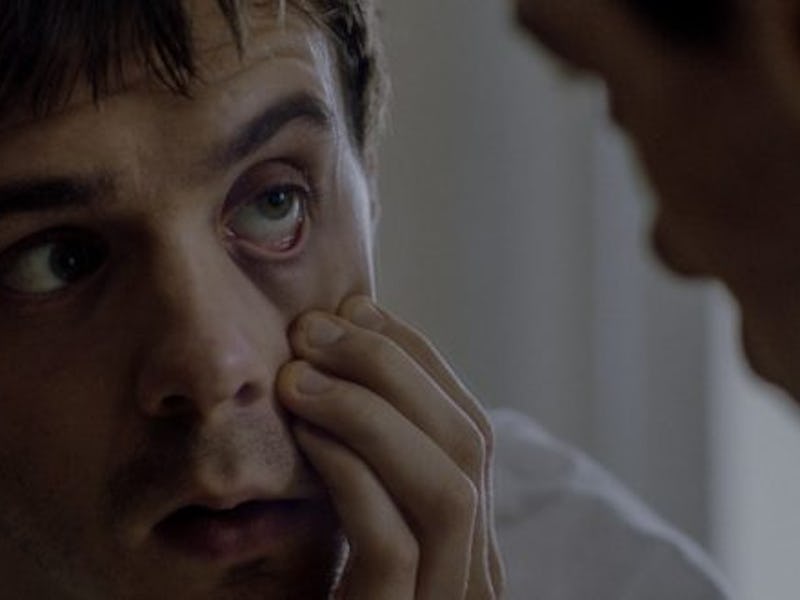'The Cured' Examines What It Feels Like to Be a Zombie
"They remember everything they did as if seeing through trapped eyes."

David Freyne’s new horror film, The Cured, delivers an entirely new interpretation of what it means to be a zombie, one that just might make it one of the scariest we’ve ever seen.
Several years after a virus transformed people all over the world into cannibalistic monsters, a cure can turn most of the infected back into “regular” humans. The film follows Senan Browne (Sam Keeley) as one of the cured struggling to readjust to human life in Dublin, Ireland.
Rather than mindless zombie hordes unleashing wanton destruction, Freyne’s infected endure a deeply traumatic experience. People essentially become trapped in their own minds. So when the cure does come and they try to resume “normal” lives, they have to live with the memories and guilt of what they did.
“More unique than the idea of the cure itself is that recollection,” Freyne explained to Inverse recently. “They remember everything they did as if seeing through trapped eyes.”
So the film’s fundamental questions then become about identity amidst the horror: “You might not have been in control,” Freyne said, “but if you have the memory of killing, maiming, and slaughtering, how can you really come back from that?”
Sam Keeley has to play different versions of Senan in 'The Cured'.
This analysis is also on full display in The Cured’s short prequel film, The First Wave, in which we see the story of the very first infected person to get the cure, named Abbie.
During a flashback to her time as an infected, Abbie seems to recognize herself in a mirror and reacts with curiosity, much like a rabid wolf might if presented with its reflection. But the illusion is shattered when she hears a little girl whimper behind her. Abbie shrieks with rage she can’t contain, and the shot fades to black. The whole thing is presented as a memory that emerges while Abbie’s recuperating: “The idea is that it would come back as flashes at first, but it is strong recollection,” Freyne explained.
What’s truly compelling about The Cured is its exploration of identity amidst the infection. What was Senan like before he was infected? How did that inform the behavior of his zombie self? And what does that all mean for his life as one of the cured? What might you the viewer be like under these circumstances?
“There’s a higher intelligence happening with the infected with a sense of hierarchy with alphas and betas,” Freyne explained. That dynamic plays out in what we see of Senan and how he interacts with Tom Vaughan-Lawlor’s Conor in both the past and present.
Sam Keeley's Senan plays beta to Tom Vaughan-Lawlor's aggressive alpha.
In the world of The Cured, the general public doesn’t understand how much people remember from their time spent as infected. But that doesn’t stop most people from marginalizing them out of fear and grief. That’s where the story gets political in nature.
Senan moves in with his sister-in-law Abbie (Ellen Page), a journalist trying to document the reintegration of the titular cured. Her own husband seemingly died in the initial outbreak. But Senan also gets pressure from Conor, a politically-minded man that’s also among the cured. He assumed the role of alpha while still infected and as a cured, he’s a politically aggressive leader that rallies others to fight against marginalization.
What could his radicalism do to an already fragile society?
That’s where the film’s drama truly starts, and it’s the exploration of identity amidst societal crisis that gives this zombie a heart unlike anything we’ve really seen before in this subgenre of horror.
The Cured will be released in theaters and VOD February 23, 2018.
Check out the prequel film The First Wave right there: